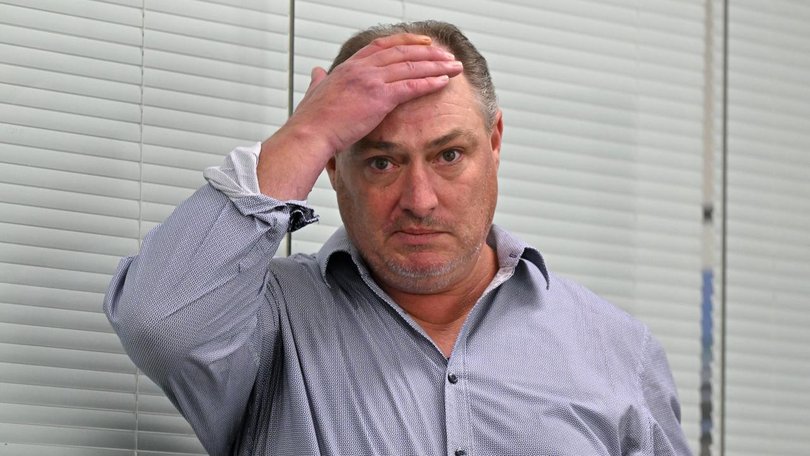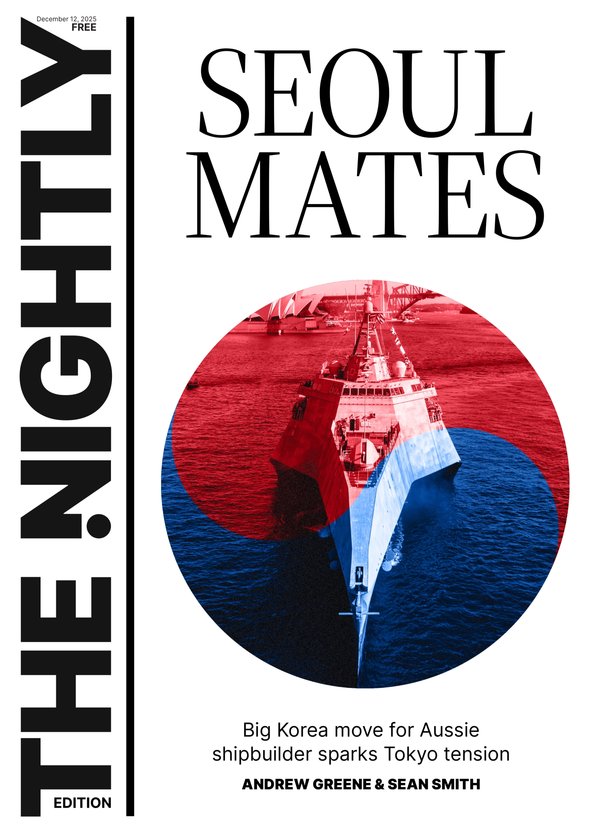'Destroyed me': Coal miner Craig Keogh wins landmark black lung payout

A coal miner who developed black lung due to his employers’ negligence has been awarded a landmark legal victory and a multimillion-dollar payout.
Craig Keogh, a machine operator at NSW and Queensland mines, became the first Australian to win a black lung case at trial, paving the way for other sufferers to make successful compensation claims.
The Dust Diseases Tribunal of NSW found the mines were negligent in exposing Mr Keogh to coal dust because they did not take reasonable care to ensure he was not exposed to avoidable injuries.
Sign up to The Nightly's newsletters.
Get the first look at the digital newspaper, curated daily stories and breaking headlines delivered to your inbox.
By continuing you agree to our Terms and Privacy Policy.Mr Keogh, who was diagnosed with pneumoconiosis in 2018 and has battled mental-health issues since, was awarded $3.2 million in damages.
Downer Mining, CPB Contractors and Campbell Mining Services are all on the hook following the decision.
Mr Keogh said he was never warned of the dangers dust from mines could pose and never wore a mask at work.
“It has basically destroyed me … physically I can’t do anything anymore, mentally there has been an impact on my thought process, my concentration, everything’s changed in my life,” he told AAP.
“I’ll run out of breath very quickly, I’m always fatigued, it’s just not good - and it’s just going to get worse.”
Ensuring others with similar ailments can get compensation and driving the industry to improve safety standards were among Mr Keogh’s main motivations for the legal action.
“I don’t want to see other miners, the new ones that are coming in, not told of these dangers … I want the word to get out there that this stuff is debilitating and ruins your life,” he said.
“I loved going to work … I was absolutely shocked when I found out my diagnosis because my work ceased immediately and no one was there to support me.”
Judge David Russell was convinced Mr Keogh’s respiratory and psychiatric health meant he would never be able to work again, with evidence suggesting his respiratory condition would deteriorate.
“Mr Keogh cannot work in any job where he would be exposed to even the most minimal level of dust … he most certainly cannot and should not be allowed to work in his old occupation as a plant operator,” he said in his judgment on Thursday.
“Mr Keogh has tried some other work but has found that he could not cope with that work mentally … (he was) quite genuine in his evidence on those matters.”
Judge Russell noted Mr Keogh “loved his work” and was distressed he couldn’t keep working in the mines.
“(He) struck me as a man who had found his ideal job and that job provided him very much with a sense of identity and friendship with fellow workers,” he said.
Shine Lawyers’ dust diseases expert Kathryn Townsend said the decision set a strong precedent for any coal miners in similar circumstances to receive compensation.
“Craig’s injury is clearly just the tip of the iceberg in terms of people suffering injuries like this in the coal mining industry,” she said.
“More and more people are being diagnosed with these diseases across all aspects of the mining industry ... this is an issue that’s pervasive across the industry and it’s clear that the coal mines are playing Russian roulette with the lives of their people.”
Downer Mining and CPB Contractors have been contacted for comment.
Campbell Mining Services was voluntarily deregistered by ASIC in mid-2023.
Lifeline 13 11 14
beyondblue 1300 22 4636
